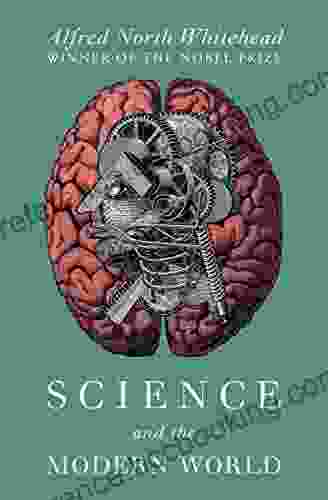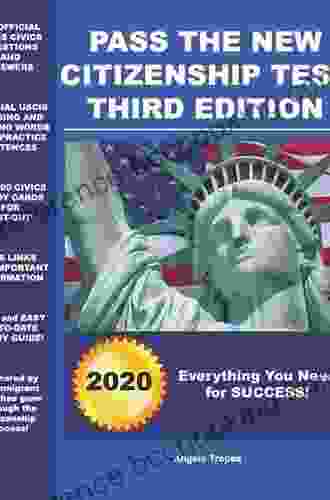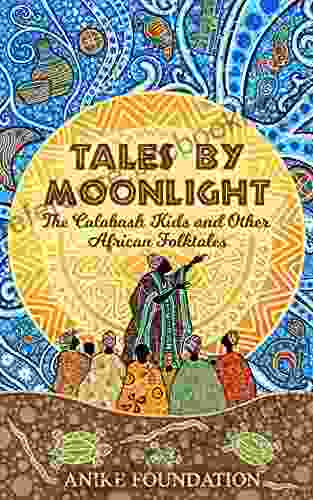Unveiling the Intertwined Destinies of Science and Civilization in "Science and the Modern World"

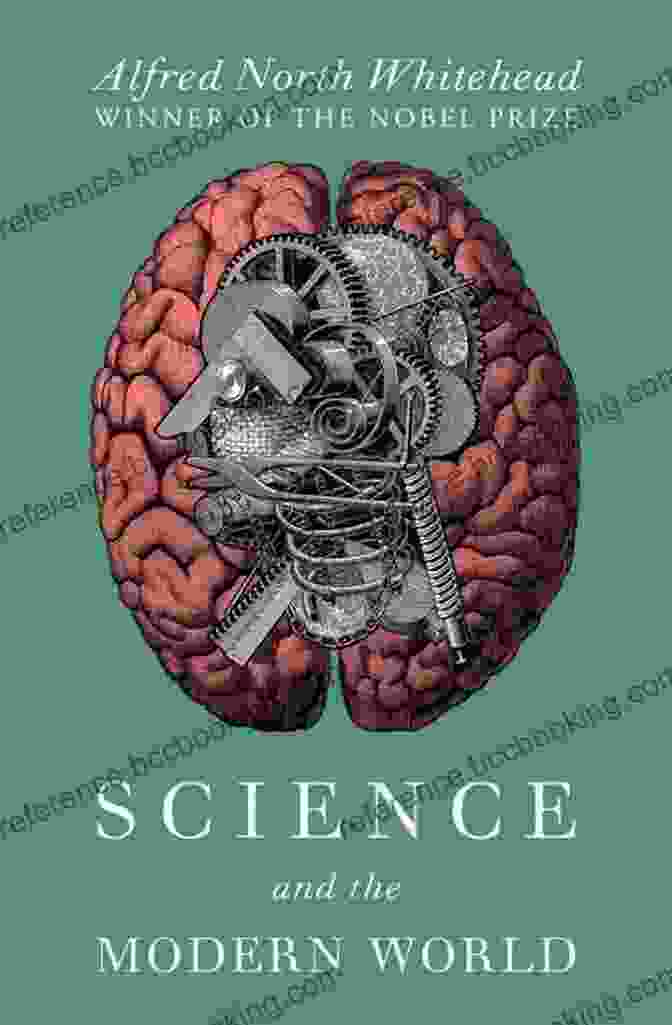
In the annals of human endeavor, the intertwined destinies of science and civilization have shaped our world in ways both profound and enduring. From the dawn of human consciousness, our insatiable curiosity about the natural world has driven us to explore its secrets and harness its power. In his seminal work, "Science and the Modern World," renowned historian and philosopher Alfred North Whitehead traces the evolution of scientific thought throughout history, revealing its transformative impact on our understanding of ourselves, the cosmos, and our place within it.
4.4 out of 5
| Language | : | English |
| File size | : | 2532 KB |
| Text-to-Speech | : | Enabled |
| Screen Reader | : | Supported |
| Enhanced typesetting | : | Enabled |
| X-Ray | : | Enabled |
| Word Wise | : | Enabled |
| Print length | : | 218 pages |
| Lending | : | Enabled |
The Origins of Scientific Inquiry
Whitehead traces the origins of scientific inquiry to the ancient Greeks, who sought to comprehend the universe through rational reasoning and empirical observation. Figures such as Pythagoras, Plato, and Aristotle laid the foundations of mathematical and logical thought, laying the groundwork for future scientific advancements.
The Scientific Revolution
The Renaissance and Reformation sparked a revival of interest in classical knowledge, which led to a renewed impetus for scientific investigation. The 16th and 17th centuries witnessed a series of groundbreaking discoveries, including Nicolaus Copernicus's heliocentric model of the universe and Galileo Galilei's laws of motion. These breakthroughs challenged long-held beliefs and laid the foundation for the Scientific Revolution.
The Rise of Modern Science
The Scientific Revolution paved the way for the development of modern science, characterized by its emphasis on experimentation, hypothesis testing, and systematic observation. Isaac Newton's laws of motion and gravity revolutionized our understanding of the physical world, while Charles Darwin's theory of evolution by natural selection transformed our understanding of the origins and diversity of life.
Science and the Modern World
Whitehead argues that the rise of modern science has had a profound impact on the modern world. Science has not only provided us with the tools to understand and manipulate the natural world, but it has also shaped our values, beliefs, and social structures.
Technological Advancements
The rise of science has led to a flurry of technological advancements that have transformed our lives. From the steam engine to the computer, scientific discoveries have revolutionized transportation, communication, and production, creating unprecedented levels of convenience and economic growth.
Medical Innovations
Science has also played a crucial role in improving human health. The development of vaccines, antibiotics, and surgical techniques has reduced mortality rates and increased life expectancy. Scientific research continues to lead to breakthroughs in disease prevention, treatment, and the understanding of human biology.
Environmental Understanding
Modern science has provided us with a unique lens through which to understand our relationship with the environment. Scientists have uncovered the complex interactions within ecosystems and have developed technologies to minimize our environmental impact, ensuring the sustainability of our planet.
Philosophical Implications
The rise of science has also had a profound impact on our philosophical outlook. Science has challenged traditional religious beliefs and has led to the development of new theories about the meaning of life and the nature of reality. Whitehead argues that science offers a complementary perspective to religion, providing a framework for understanding the material world without diminishing the importance of spiritual experience.
The Challenges and Responsibilities of Science
While science has brought immense benefits to humanity, Whitehead also recognizes its inherent limitations and potential dangers. He warns against the hubris of believing that science can answer all questions or solve all problems. He emphasizes the ethical responsibilities that scientists and the wider society must bear in the responsible use of scientific knowledge.
The Ethics of Scientific Research
Whitehead calls for a rigorous ethical framework to guide scientific research, ensuring that the pursuit of knowledge does not compromise human values or the well-being of future generations. He argues that scientists must consider the potential consequences of their work and prioritize the safety and welfare of society.
The Dangers of Misinformation
In an age of rapid scientific advancement, Whitehead recognizes the importance of distinguishing between genuine scientific knowledge and misinformation. He emphasizes the need for critical thinking and scientific literacy, so that individuals can make informed decisions based on reliable information.
The Stewardship of Science
Whitehead argues that society has a responsibility to ensure the responsible stewardship of science. He calls for public engagement with science and funding for basic research, recognizing that the advancement of knowledge and the well-being of future generations depend on the continued support and understanding of the broader society.
"Science and the Modern World" is a profound and timeless work that offers a comprehensive examination of the intertwined destinies of science and civilization. Whitehead's insights and perspective remain as relevant and thought-provoking today as they were when the book was first published in 1925. By understanding the historical trajectory of science, its transformative impact, and the challenges it presents, we can better appreciate and harness its power for the betterment of humanity and the protection of our planet.
4.4 out of 5
| Language | : | English |
| File size | : | 2532 KB |
| Text-to-Speech | : | Enabled |
| Screen Reader | : | Supported |
| Enhanced typesetting | : | Enabled |
| X-Ray | : | Enabled |
| Word Wise | : | Enabled |
| Print length | : | 218 pages |
| Lending | : | Enabled |
Do you want to contribute by writing guest posts on this blog?
Please contact us and send us a resume of previous articles that you have written.
 Book
Book Novel
Novel Page
Page Chapter
Chapter Text
Text Story
Story Genre
Genre Reader
Reader Library
Library Paperback
Paperback E-book
E-book Magazine
Magazine Newspaper
Newspaper Paragraph
Paragraph Sentence
Sentence Bookmark
Bookmark Shelf
Shelf Glossary
Glossary Bibliography
Bibliography Foreword
Foreword Preface
Preface Synopsis
Synopsis Annotation
Annotation Footnote
Footnote Manuscript
Manuscript Scroll
Scroll Codex
Codex Tome
Tome Bestseller
Bestseller Classics
Classics Library card
Library card Narrative
Narrative Biography
Biography Autobiography
Autobiography Memoir
Memoir Reference
Reference Encyclopedia
Encyclopedia Andy Maslen
Andy Maslen Andy Schell
Andy Schell Andrea Pelleschi
Andrea Pelleschi Alice Roberts
Alice Roberts Alexandra Wolff
Alexandra Wolff Andy Zipser
Andy Zipser Andrew Helfer
Andrew Helfer Alex White
Alex White Amy Medling
Amy Medling Angela Daniel
Angela Daniel Alexandra M Levitt
Alexandra M Levitt Amy E Herman
Amy E Herman American College Of Veterinary Behaviorists
American College Of Veterinary Behaviorists Amy Lang Ma
Amy Lang Ma Alexis Mamaux
Alexis Mamaux Andrew Beyer
Andrew Beyer Alyssa Cole
Alyssa Cole Alison Beazley
Alison Beazley Alisscia B
Alisscia B Alicia Partnoy
Alicia Partnoy
Light bulbAdvertise smarter! Our strategic ad space ensures maximum exposure. Reserve your spot today!

 Christian CarterUnleash Your Creativity with Easy Knits for Teen Dolls: A Comprehensive Guide...
Christian CarterUnleash Your Creativity with Easy Knits for Teen Dolls: A Comprehensive Guide...
 Blake KennedyEscape into the Enchanting World of Elizabeth Bishop Brazil: A Masterpiece of...
Blake KennedyEscape into the Enchanting World of Elizabeth Bishop Brazil: A Masterpiece of... Xavier BellFollow ·19.9k
Xavier BellFollow ·19.9k Eddie BellFollow ·2.5k
Eddie BellFollow ·2.5k J.R.R. TolkienFollow ·14.4k
J.R.R. TolkienFollow ·14.4k Carson BlairFollow ·14.3k
Carson BlairFollow ·14.3k Jackson HayesFollow ·18k
Jackson HayesFollow ·18k Brennan BlairFollow ·19.1k
Brennan BlairFollow ·19.1k Samuel Taylor ColeridgeFollow ·5.9k
Samuel Taylor ColeridgeFollow ·5.9k Robert HeinleinFollow ·14.6k
Robert HeinleinFollow ·14.6k

 Julio Cortázar
Julio CortázarIf You Don't Do Politics, Politics Will Do You
Uncover the Hidden Power in Everyday Life In...
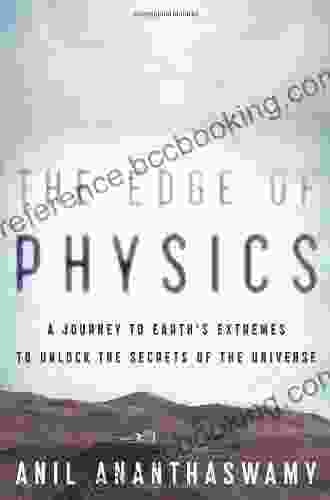
 Ivan Turner
Ivan TurnerThe Edge of Physics: Unraveling the Extraordinary...
What is the nature of...
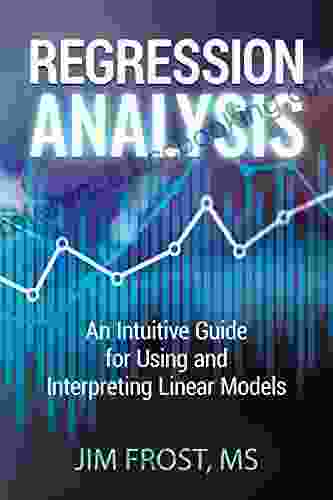
 Diego Blair
Diego BlairAn Intuitive Guide For Using And Interpreting Linear...
Linear models...
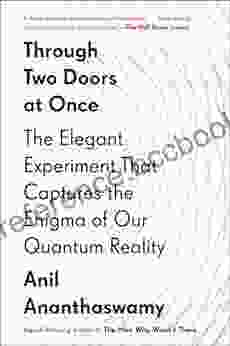
 Oscar Wilde
Oscar WildeThrough Two Doors At Once: Unveiling the Enigmatic World...
Prepare to delve into the captivating realm of...

 Darrell Powell
Darrell PowellWomen Athletes in History: An Inspiring Gift for Teenage...
Unveiling the Extraordinary Stories of Female...
4.4 out of 5
| Language | : | English |
| File size | : | 2532 KB |
| Text-to-Speech | : | Enabled |
| Screen Reader | : | Supported |
| Enhanced typesetting | : | Enabled |
| X-Ray | : | Enabled |
| Word Wise | : | Enabled |
| Print length | : | 218 pages |
| Lending | : | Enabled |


